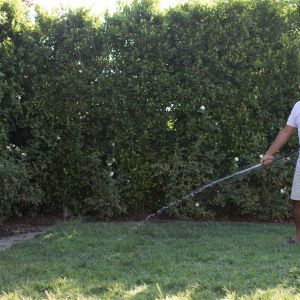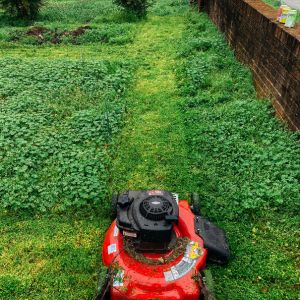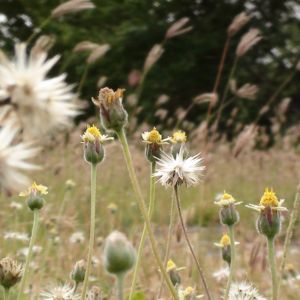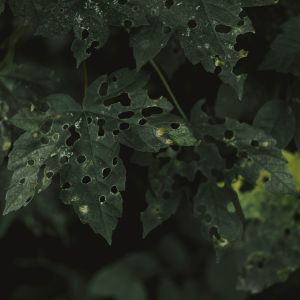We’ve all heard the saying that ‘the grass isn’t always greener on the other side,’ but it’s tough not to wonder how your neighbor manages to keep their lawn so lush. So, what’s their secret to a consistently greener yard? Let’s explore the world of lawn care secrets together.
Could it be that your neighbor has a high-tech automatic irrigation system, while your lawn misses out on the regular hydration it needs? Or perhaps it’s because your neighbor’s pets don’t use your lawn as their personal restroom. Regardless of the reasons, let’s uncover the various ways to transform your lawn into a lush paradise.

The Science of Proper Watering
One of the keys to achieving a vibrant lawn is mastering the art of watering. Maybe your neighbor has figured it out by watering their lawn less often but more deeply, which promotes robust root growth. Aim for the sweet spot of 1 to 1.5 inches of water per week, preferably in the early morning to avoid the harsh midday sun. It’s time to bid farewell to evening watering, as it can create a damp environment that’s prone to disease. And for those who love technology, consider installing an automatic irrigation system for effortless watering. Always remember, water is the lifeblood of a green lawn!
Grass Varieties Matter
Don’t be too hard on yourself; sometimes, the secret lies in the type of grass you have. Different grass varieties come in various shades of green and have distinct growth patterns. While you may be following the same care routine as your neighbor, your grass may simply belong to a different category. Warm-season grasses thrive in the heat of summer and go dormant in winter, while cool-season grasses flourish in spring and fall and can handle harsh winters. If you find yourself in a transitional zone, you can even nurture both types for a striking mix of greenery.

Mowing Techniques that Make a Difference
Your neighbor’s lawn may owe its vibrancy to their expert mowing techniques. Avoid the temptation to cut your grass too short in an attempt to reduce the frequency of mowing, as this can stress your lawn. Embrace the 1/3 rule: never trim more than one-third of the grass blade’s height in a single mowing. Keep your mower blades sharp for a clean cut and a healthy lawn free from disease.

Defeating Weeds
Unwanted weeds can be a nemesis to a beautiful lawn, as they compete for resources with your grass. Stay vigilant in your mission to get rid of them. You can use pre-emergence and post-emergence herbicides or opt for a chemical-free approach with gardening tools. Just be cautious not to accidentally harm your precious grass.
Boosting Nutrients
Sometimes, the secret to a greener lawn lies in proper nourishment. Plants, including your grass, require three key nutrients: nitrogen, potassium, and phosphorus. If your lawn looks lackluster, it may be suffering from a nutrient deficiency. Consider using liquid or granular fertilizers, each with its own advantages. Timing is crucial – feed warm-season grasses in late spring to summer and cool-season grasses in the fall.
Managing Pet-Related Issues
If you’re a pet owner, you know that dog urine can be a double-edged sword. While it contains nitrogen, an essential component of fertilizer, excessive urine can result in unsightly brown patches on your lawn. Train your furry companion to do their business away from the grass, or rinse the area with water promptly.
The Magic of Mulch
Your neighbor might be harnessing the power of mulch to boost their lawn’s health. Mulch provides essential organic matter for soil nutrition, helps prevent dehydration, and acts as a natural weed deterrent. You can recycle grass clippings by using a specialized blade on your mower or manually spread finely shredded leaves around your yard.
Letting Your Lawn Breathe
Aeration is often an unsung hero of lawn care, and your neighbor might be reaping its benefits. Compacted soil can deprive your lawn of oxygen, water, and nutrients. Check if your lawn needs aeration with the ‘screwdriver test.’ If the soil resists penetration, it’s time to aerate during the growing season.
Dealing with Thatch
Thatch, the organic layer between soil and grass blades, can be your lawn’s nemesis if it accumulates excessively. Beyond half an inch, it can hinder water and nutrient absorption and become a breeding ground for pests and diseases. Consider dethatching during the growing season for a lusher, healthier lawn.
Overseeding for a Fuller Lawn
Have you noticed unsightly patches on your lawn? Wondering how your neighbor’s lawn stays so flawless? They might be overseeding annually, generously spreading grass seeds for a denser, greener appearance. Choose spring for warm-season lawns or autumn for cool-season varieties. For quick results on bald spots, opt for grass plugs instead of waiting for seeds to germinate.
Extending the Green Season
If your neighbor’s lawn remains green throughout the winter, they’re likely overseeding with annual or perennial ryegrass on their warm-season grass. This strategy can keep your lawn vibrant for longer periods.

Watch Out for Pests
Pests can wreak havoc on your lawn if left unchecked. Your neighbor’s lawn might be pest-free because they’re diligent about monitoring it. Keep an eye out for signs such as brown patches, torn grass blades, bare spots, withering grass, or unusual discoloration. Early detection can be your lawn’s savior.
Consider Professional Help
Despite your best efforts, you may still wonder why your neighbor’s lawn outshines yours. The answer could be professional assistance. Elevate your lawn care game by consulting a local expert like Royal Pro Landscaping to unlock your yard’s full potential.
In your pursuit of the greenest lawn on the block, remember that patience, care, and a little expert guidance can transform your lawn into a stunning masterpiece that rivals your neighbor’s lush haven.
